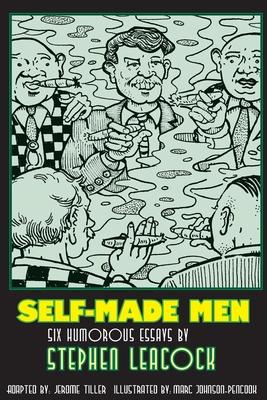Stephen Leacock headed the political science and economics departments at McGill University in Toronto and established a notable reputation as an academic economist. He also wrote humorous essays. Many of his friends presumed he wrote them in idle moments when his wearied brain was unable to perform the serious labors of the economist. In fact, it was exactly the opposite. He found it no challenge to write instructive, academic stuff fortified by facts and figures, but to write something straight out of one’s mind that was worth reading for its own sake was an arduous contrivance that he claims he only accomplished in fortunate moments.
Yet somehow between the years 1915 and 1925, Leacock became the most popular humorist in the English speaking world. He consistently forced belly laughter by poking fun at people’s foolish acts and ideas and excelled at adroitly balancing cutting satire with over-the-top absurdity.
In one way or another, these six Leacock essays humorously address the perception of success in life, primarily as it pertains to wealth and health. As Leacock tells it, the successful pursuit of wealth or health tends to distort how people perceive themselves, a distortion that might be remedied if they were to add the undisciplined intake of food, smoke, and drink into their lives.
As this example shows, Leacock’s satire is too far over the top to be mean-spirited. It never descends into harsh analysis of the human condition. In absurdity he found the key to poking fun at the human condition in a way that appeals to everyone, including the specific segments of the population being targeted with his satire.










